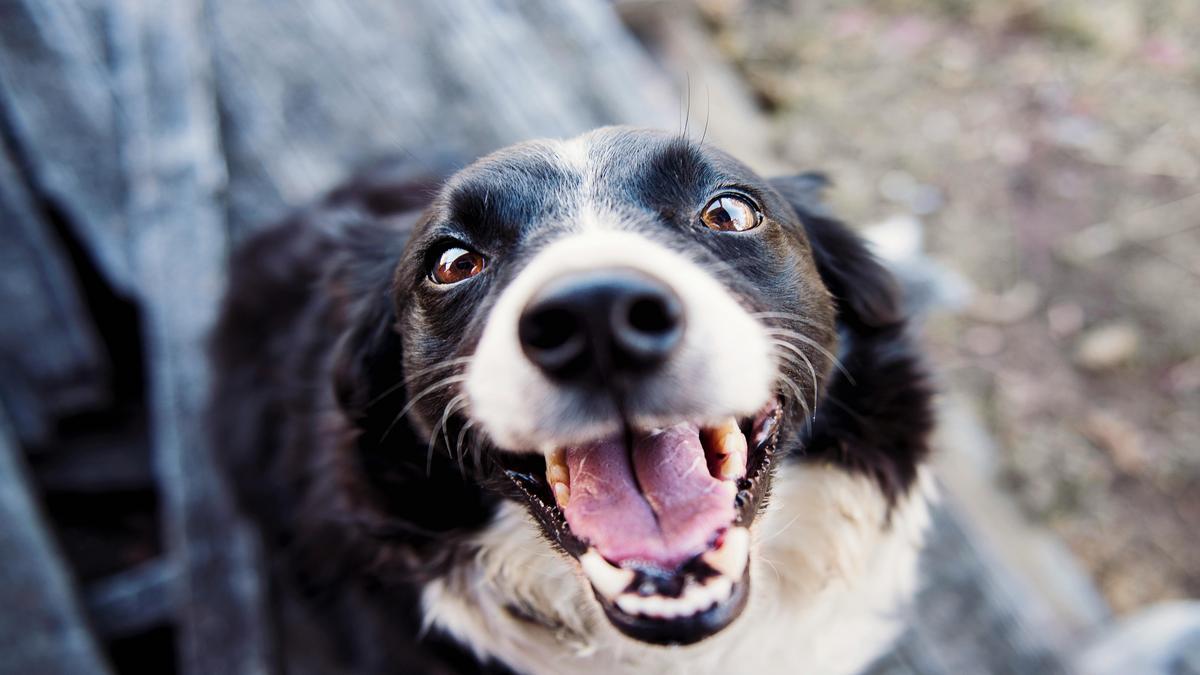Altered Sleep Patterns: Illness, Anxiety, or Stress
Are you concerned about your furry friend’s altered sleep patterns? Understanding the reasons behind your dog’s disrupted rest is crucial for their overall well-being. From illness to anxiety and stress, various factors can impact your pet’s sleep quality. This article will delve into the importance of recognizing these issues, offering tips to help your dog overcome sleeping challenges, and ultimately enhance their sleep cycle. By learning how to identify and address altered sleep patterns, you can ensure your canine companion gets the rest they need to stay healthy and happy.
Key Takeaways
- Keep track of your dog’s sleep patterns
- Provide a comfortable sleeping environment
- Establish a bedtime routine
- Limit disruptions during the night
- Consult a veterinarian if you notice significant changes

The Importance of Understanding Dog Sleep Patterns
NLP for Dog Sleep
When it comes to understanding your furry friend, decoding their sleep patterns is crucial. Just like humans, dogs have unique sleep habits that can tell us a lot about their overall well-being. By navigating the complexities of canine sleep, you can gain valuable insights into your pet’s health and behavior.
Understanding Canine Sleep
Dogs have different stages of sleep, each serving a specific purpose. Let’s delve into the realm of canine sleep to uncover the mysteries behind your pup’s slumber.
Exploring the different stages of canine sleep
To better understand your dog’s sleep patterns, let’s break down the different stages of canine sleep:
| Sleep Stage | Description |
|---|---|
| Light Sleep | During this stage, your dog may twitch, make noises, or move slightly. |
| Deep Sleep | Your dog is in a more profound sleep state, with slowed breathing. |
| REM Sleep | This stage is where most dreaming occurs, with rapid eye movements. |
| Awake | Dogs can be lightly sleeping or fully awake during this stage. |
By unveiling the secrets of your dog’s sleep patterns, you can better interpret their behavior and address any potential issues that may arise, such as Altered Sleep Patterns: Illness, Anxiety, or Stress.
Common Sleep Disturbances in Dogs
Altered Sleep Behavior
Dogs, just like humans, can experience altered sleep patterns due to various reasons. These changes in their sleep behavior can be a result of illness, anxiety, stress, or other underlying issues. Understanding these sleep disturbances can help you better support your furry friend.
Canine Insomnia
Canine insomnia is a condition where a dog has difficulty falling asleep or staying asleep. This can be a challenging situation for both the dog and the owner. Identifying the root cause of insomnia in your dog is crucial to finding a solution and improving their sleep quality.
Tips to help your dog overcome sleeping issues
Here are some tips to help your dog overcome sleeping issues and promote better sleep habits:
- Establish a Routine: Dogs thrive on routine, so creating a consistent bedtime routine can help signal to your dog that it’s time to sleep.
- Provide Comfort: Ensure your dog has a comfortable and cozy sleeping environment with a soft bed and adequate bedding.
- Regular Exercise: Engaging in regular physical activity can help your dog expend energy during the day, leading to better sleep at night.
- Limit Stimulants: Avoid giving your dog stimulants like caffeine or high-energy play close to bedtime.
- Consult a Veterinarian: If your dog continues to experience sleep disturbances, it’s essential to consult with a veterinarian to rule out any underlying health issues.

Recognizing Signs of Illness in Altered Sleep Patterns
Identifying Symptoms of Illness
When it comes to your furry friend’s well-being, recognizing signs of illness is crucial. One significant indicator can be altered sleep patterns. By paying close attention to your dog’s sleeping habits, you can potentially detect early signs of illness. Some common symptoms to look out for include:
- Excessive sleeping
- Restlessness during sleep
- Difficulty falling asleep
- Increased or decreased sleep duration
Understanding the impact of illness on your dog’s sleep
Illness can significantly impact your dog’s sleep patterns. Just like humans, dogs may experience disrupted sleep when they are unwell. This can manifest as frequent waking, whimpering, or changes in sleeping positions. Understanding how illness affects your dog’s sleep can help you provide the necessary care and support.
When to consult a veterinarian
If you notice any altered sleep patterns in your dog that persist or are accompanied by other concerning symptoms, it is advisable to consult a veterinarian promptly. Early detection and treatment of illnesses can make a significant difference in your dog’s recovery and overall well-being.
Managing Anxiety-Related Sleep Issues in Dogs
Addressing Canine Anxiety
When your furry friend is struggling with anxiety, it can significantly impact their sleep patterns. Dogs, much like humans, can experience anxiety due to various reasons such as separation anxiety, loud noises, or changes in their environment. It’s essential to address these underlying issues to help your dog get a good night’s rest.
Creating a calming sleep environment for your dog
To help your dog relax and get a restful night’s sleep, creating a calming sleep environment is key. Here are some tips to set the stage for a peaceful slumber:
| Tips for a Calming Sleep Environment |
|---|
| 1. Comfortable Bed: Provide a cozy and comfortable bed for your dog to sleep on. |
| 2. Dim Lighting: Dim the lights in the room to create a soothing atmosphere. |
| 3. White Noise: Consider using white noise machines to drown out any disruptive sounds. |
| 4. Temperature: Ensure the room is at a comfortable temperature for your dog. |
Implementing relaxation techniques
Incorporating relaxation techniques can help alleviate your dog’s anxiety and promote better sleep. Here are some techniques you can try:
- Massage: Gently massaging your dog can help them relax and unwind.
- Aromatherapy: Using calming scents like lavender can have a soothing effect on your dog.
- Music: Playing soft, calming music can help create a peaceful environment for your dog to sleep in.
By addressing your dog’s anxiety and creating a calming sleep environment, you can help them overcome their Altered Sleep Patterns: Illness, Anxiety, or Stress and enjoy a good night’s rest.

Coping with Stress-Induced Sleep Problems in Dogs
Sources of Stress for Dogs
When it comes to understanding your furry friend, it’s essential to recognize the potential sources of stress that can affect their sleep patterns. Dogs can experience stress from various factors, including:
- Loud noises
- Changes in routine
- Separation anxiety
- New environments
- Unfamiliar people or animals
- Medical issues
Impact of stress on sleep quality
Stress can significantly impact your dog’s sleep quality, leading to altered sleep patterns. Just like humans, dogs need quality rest to stay healthy and happy. When stress interferes with their sleep, it can result in:
- Restlessness
- Excessive barking
- Whining
- Difficulty falling asleep
- Frequent waking during the night
Strategies to reduce stress and improve your dog’s sleep
To help your canine companion cope with stress-induced sleep problems, it’s crucial to implement strategies that promote relaxation and peace of mind. Here are some tips to reduce stress and improve your dog’s sleep:
| Strategies | Description |
|---|---|
| Establish a Routine | Dogs thrive on predictability. Create a consistent daily routine |
| Provide Comfort | Offer a comfortable bed and safe space for your dog to relax |
| Regular Exercise | Physical activity can help reduce stress and promote better sleep |
| Calming Techniques | Use calming methods such as massage or music to relax your dog |
| Consult a Veterinarian | If stress persists, seek advice from a veterinarian for further guidance |
Enhancing Your Canine Companion’s Sleep Cycle
Promoting Healthy Sleep Habits
When it comes to your furry friend’s well-being, quality sleep is just as important for them as it is for you. By promoting healthy sleep habits, you can ensure that your dog is rested and refreshed each day. Here are some tips to help enhance your canine companion’s sleep cycle:
Creating a consistent bedtime routine for your dog
A consistent bedtime routine can work wonders for your dog’s sleep patterns. Just like humans, dogs thrive on routine and predictability. By establishing a regular bedtime and pre-sleep rituals, you can signal to your dog that it’s time to wind down and get ready for a restful night’s sleep. Consider incorporating activities such as a short walk, gentle playtime, or a calming belly rub before bedtime.
| Bedtime Routine for Your Dog |
|---|
| 1. Short walk |
| 2. Gentle playtime |
| 3. Calming belly rub |
Improving overall well-being through better sleep
Quality sleep not only recharges your dog’s energy levels but also plays a crucial role in their overall well-being. Adequate rest can help boost your dog’s immune system, cognitive function, and mood. By ensuring that your canine companion gets enough rest each night, you are investing in their long-term health and happiness.
In the realm of pet care, understanding your dog’s sleep patterns can unveil the secrets to their behavior and wellness. By promoting healthy sleep habits and creating a consistent bedtime routine, you can navigate the complexities of your dog’s sleep needs. Remember, a well-rested dog is a happy and healthy dog.
Frequently asked questions
Why is my dog sleeping more than usual?
Dogs might sleep more due to illness, anxiety, or stress. It’s essential to monitor their behavior and consult with a vet if you notice any concerning changes.
How can I help my dog with altered sleep patterns?
Creating a comfortable and safe sleeping environment can help your dog relax. Providing regular exercise, mental stimulation, and a consistent routine can also improve their sleep quality.
What are signs that my dog is experiencing sleep disturbances?
Look out for restless behavior, excessive panting during sleep, sudden awakenings, or changes in sleep duration. These could indicate underlying issues affecting your dog’s rest.
Is it normal for dogs to sleep a lot during the day?
Yes, it’s normal for dogs to take short naps throughout the day. However, if you notice a significant increase in their sleeping habits, it’s essential to evaluate potential causes such as altered sleep patterns due to illness, anxiety, or stress.
Should I be concerned if my dog is sleeping less than usual?
If your dog is sleeping less and showing signs of fatigue, irritability, or changes in behavior, it could be a red flag. Consult your vet to rule out any underlying health issues causing altered sleep patterns.

